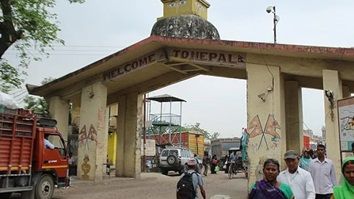The Supreme Court of Nepal has ordered the authorities to make extra arrangements for effective regulation of the open border between Nepal and India. The court said it has become necessary to stop illegal and criminal activities taking place in the bordering areas and effectively manage people’s movement across the international border.
Issuing the full text of the mandamus order, which was issued two and a half years ago, the court has asked the authorities concerned to use technologies such as drones and CCTVs to make the monitoring by security personnel more effective.
The top court has also ordered the authorities to set up designated border crossing points and provide local language training to the staff working at the customs offices and the security personnel deployed there as far as possible, so that those who use the border points frequently do not face language-related problems.
A bench of justices Prakash Man Singh Raut and Purushottam Bhandari issued the order in the name of Office of the Prime Minister and Council of Ministers; the federal parliament secretariat; the Ministry of Foreign Affairs; the Ministry of Defence; the Ministry of Home Affairs; the Ministry of Law, Justice and Parliamentary Affairs; Ministry of Land Reform and Management; the Ministry of Culture, Tourism and Civil Aviation; the Ministry of Forest and Environment; and the Ministry of Finance.
Hearing on the petition registered by advocate Chandra Kanta Gyawali, border expert Buddhi Narayan Shrestha, and advocates Bimal Gyawali, Liladhar Upadhyay and Shashi Kumar Karki, the justices had issued the mandamus order on April 25, 2021. The full text was issued this week.
The court ordered the authorities to fulfill the responsibilities in accordance with the constitution of Nepal and other existing laws, international laws and bilateral treaties and agreements reached between Nepal and India. The court has further ordered the government agencies to sign additional treaties and agreements, if needed, based on equality and mutual interests through political and diplomatic initiatives to ensure effective management and regulation of the open border between the two countries.
It has also asked the authorities to resolve existing border disputes with India through diplomatic channels, restore the missing and broken border pillars and expedite the task of clearing the no man’s land.








